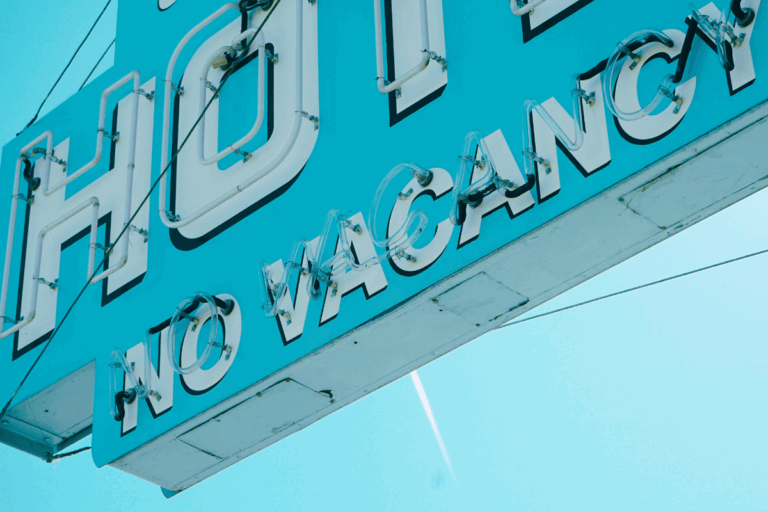When news of a new virus began coming out of China in late 2019, few would have anticipated the significance this would have on all our lives. Yet, within a matter of weeks, the whole planet – and the entire travel industry – was effectively closed for business. Nothing like this had happened in at least 100 years.
But even as the threat emerged, the most robust business travel policies were already working to protect their people. The situation was being monitored. Advice from foreign offices was considered, alongside guidance from medical experts, security specialists and scientists.
Because this is what has always been done by global businesses.
Predicting the unpredictable
Companies have a duty of care to their people while they are away on mission-critical business travel. And keeping business travellers safe from harm – whatever form that may take – should be priority number one.
However, it’s not just about shielding teams and executives from the dangers of war, civil unrest or even outbreaks of disease. It should also be about keeping passengers fit and well – physically and mentally – as they move through time zones, climates, cultures and cuisines.
Are you meeting your duty of care?
Travel, whether for business or leisure, can be unpredictable. Duty-of-care measures within travel policies and wider organisational guidelines seek to mitigate this risk – and provide easy-to-find answers should the worst happen.
At the most basic level, duty of care is the legal responsibility of an organisation for the safety of its corporate travellers – but good travel policies often extend beyond this legal minimum.
Prevention is alway the best protection, so here are three areas you should be taking into consideration in your travel policy – rather than just waiting for things to go wrong.
1. Location risk briefings
All destinations have different risks attached to them. Some may have certain cultural expectations with regards to dress, customs and behaviour. Others might have extreme climates. Local laws may be unfamiliar to outsiders, political speech could be limited and there might even be civil unrest.
Wherever possible, companies should include guidelines on the individual regions they do business in. This should extend to expectations around the hotels they book for their teams – think about considerations like whether tap water at the hotel will be safe to drink or if certain items or practices might be strictly controlled, even in the privacy of a hotel room.
2. Monitoring emerging threats
The relative stability enjoyed by the majority of Europe and North America isn’t universal; new threats are constantly emerging around the world. International tensions are at a high as the war between Russia and Ukraine continues. Taiwan and China are teetering on the verge of a similar conflict. And these are only the stories that make international headlines.
The reality is that, at any given time, war is raging somewhere in the world. Columbia and Mexico are gripped by the never-ending war on drugs. Countries like Myanmar, Yemen, Afghanistan, Ethiopia, Somalia, Libya and Syria are still rocked by civil war. Many Central African nations are under threat from terrorist insurgency.
It is essential to monitor the state of emerging conflicts, security threats and public health risks around the world. And always ensure you have emergency extraction plans for your teams, wherever they may be.
3. Traveller wellbeing
Traveller burnout is often an unseen risk but can quickly rack up to unhappy, stressed and tired teams. It’s crucial to devise a policy that includes choice, decompression time, adjustment time and plenty of margin for error. For example:
❌ Don’t make travellers hail a cab in the dead of night in an unfamiliar place.
✔️ Avoid anxiety by making sure transfers are booked in advance with reputable companies.
❌ Don’t send travellers straight from a seven-hour flight into a meeting.
✔️ Factor in ample time to eat, sleep and reset their body clock before they have to get to work.
❌ Don’t leave travellers stranded with nowhere to stay because there’s errors in the hotel booking or it’s booked under a corporate card they don’t have access to.
✔️ Double check that their hotel booking is secure and confirmed – and that they have the documentation to check in effortlessly – before they travel.
It seems simple, but these incidents happen all the time – and they can rob your high performers of energy when they are supposed to be focusing on work.
The best advice? Always stay in policy
A travel policy should be so much more than spending limits and a number to call in an emergency. It should also consider physical and mental health, dangers from outside forces and pre-emptive advice for what to do when things go wrong. By creating a robust, well-rounded travel policy – and sticking to it – you ensure the best possible outcomes for your travellers and, in turn, for your business.







